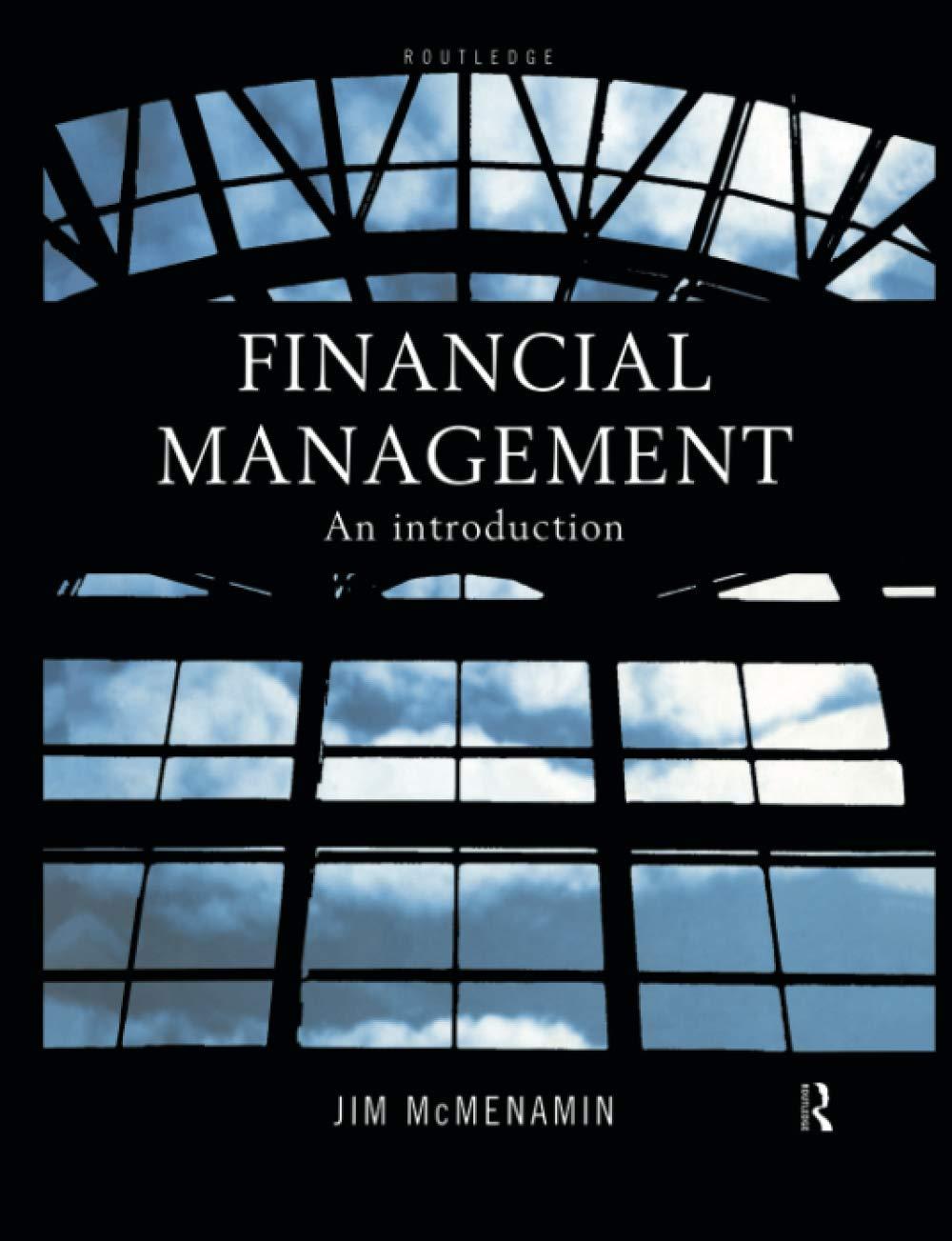7 Working capital managementgeneral. (a) Discuss: (i) the significance of trade creditors in a firms working capital
Question:
7 Working capital management—general.
(a) Discuss:
(i) the significance of trade creditors in a firm’s working capital cycle, and
(ii) the dangers of over-reliance on trade credit as a source of finance.
(b) Keswick plc traditionally follows a highly aggressive working capital policy, with no long-term borrowing. Key details from its recently compiled accounts appear below:
£m Sales (all on credit) 10.00 Earnings before interest and tax (EBIT) 2.00 Interest payments for the year 0.50 Shareholders’ funds (comprising £1m issued share capital, par value 25p, and £1m revenue reserves)
2.00 Debtors 0.40 Stocks 0.70 Trade creditors 1.50 Bank overdraft 3.00 A major supplier which accounts for 50 per cent of Keswick’s cost of sales, is highly concerned about Keswick’s policy of taking extended trade credit. The supplier offers Keswick the opportunity to pay for supplies within 15 days in return for a discount of 5 per cent on the invoiced value.
Keswick holds no cash balances but is able to borrow on overdraft from its bank at 12 per cent. Tax on corporate profit is paid at 33 per cent.
Required:
Determine the costs and benefits to Keswick of making this arrangement with its supplier, and recommend whether Keswick should accept the offer.
Your answer should include the effects on:
• the working capital [cash conversion] cycle
• interest cover
• profits after tax
• earnings per share
• return on equity
• capital gearing.
Step by Step Answer:






